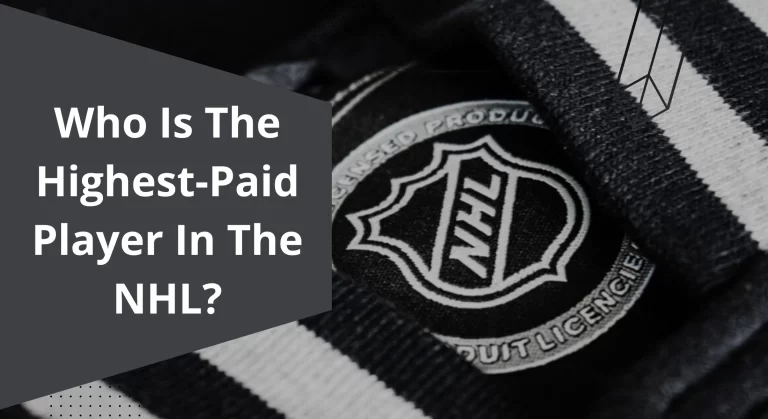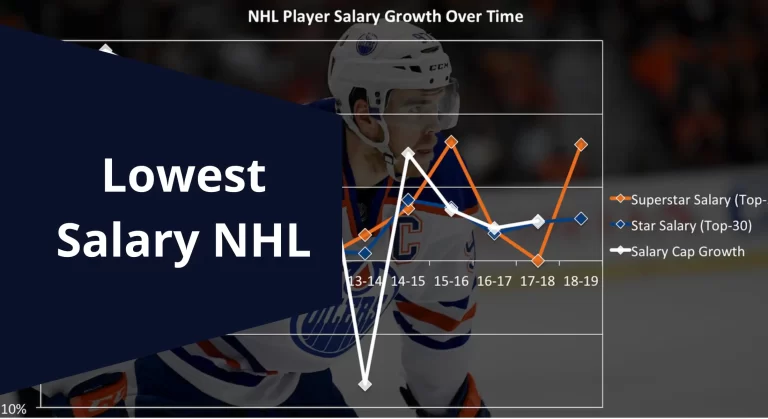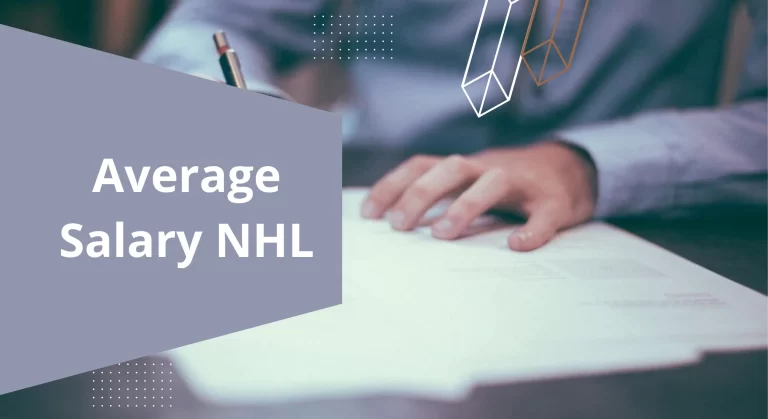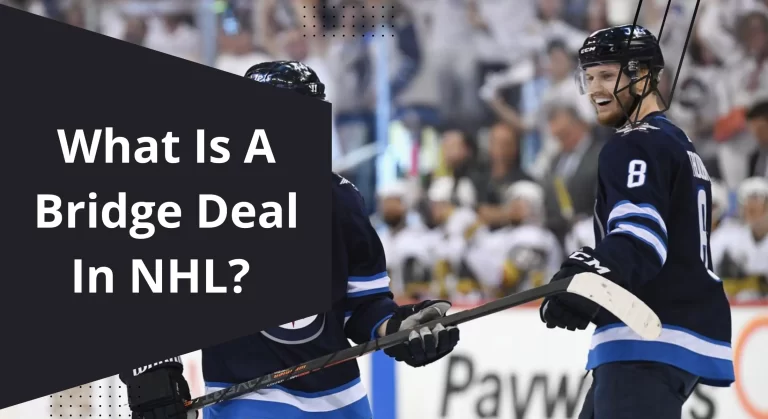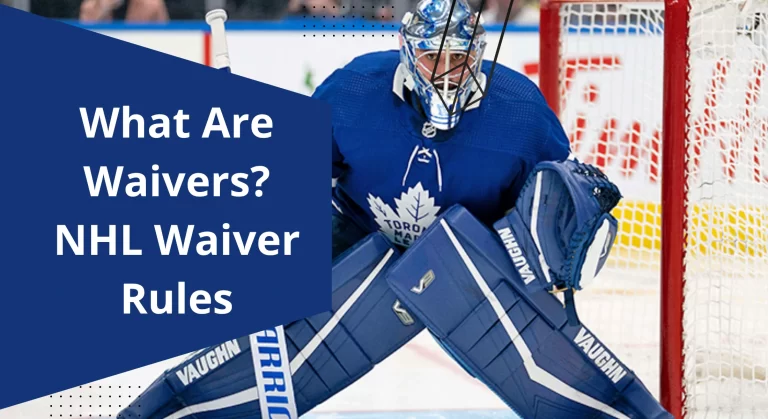What’s the difference between RFA and UFA in the NHL?
In order to enter an NHL league, you must inquire all about the essential factors of it which will let you know about how the players are kept, traded, and signed from time to time. In short, a thorough explanation regarding an RFA is required to know all that. So let us begin with the question that what is a Restricted Free Agent.
A restricted free agent (RFA) is an NHL player who has completed their entry-level contract and is no longer eligible to sign on to an American Hockey League team. These players are eligible to re-sign with their current team or negotiate a contract with another team. If a deal cannot be reached by midnight on August 15th, players become unrestricted free agents and can sign with any team.
Moreover, Restricted Free Agents are often seen as a bargaining chip for teams looking to retain talent while avoiding paying them market value as well as a way for teams to get better draft picks if they lose a player. We will cover the full topic in this guide on Restricted Free Agent NHL.
What is a restricted free agent?
RFAs are players that have passed their introduction contract and are 26 years old or older. They can be subject to a qualifying offer from the team that drafted them, but they can choose to hit the open market and sign with any team they want.

An NHL-restricted free agent is a player who was drafted by an NHL team but has yet to play in an NHL game. These players are subject to signing an entry-level contract with their original team, but if they don’t agree on terms, they have the right to go elsewhere without penalty.
- Restricted free agents are often very valuable to their teams because they have already shown that they can play at a high level. This means that teams are willing to spend more money on them than they might spend on an unrestricted free agent or rookie.
- They also give a team some leverage over other teams because their contract terms are only partially determined by what the player wants. If another team offers a contract that includes more money or more years than what the player’s current team can match, then the player could take less money or fewer years with his original team than he would have had to take if he were an unrestricted free agent.
What is the difference between a restricted free agent and an unrestricted free agent?
- Restricted free agency is a business term that refers to a player who has at least three years of experience in the league.
- A restricted free agent (RFA) will be offered a contract by their current team, and they have the option to accept or decline it.
- If they choose to decline their current team’s offer, the team can match any other contract that is offered to them by another team.
- They can negotiate with other teams, but if they sign with another team, that team would have to give up draft picks or players to compensate the original team.
- Unrestricted free agents are unrestrained in their free agency and can sign with any team they desire.
- A player who has played in the NBA for at least one or two campaigns and whose contract has ended is considered an unrestricted free agent (UFA). He is eligible to join any franchise he wishes.
- They can negotiate with any team and don’t have to give up compensation for signing with another team.
Does a restricted free agent have to sign with his team?
Any team in the premier league can acquire a restricted free agent, but his present club has the ability to match any deal offered either by the team. If his current team refuses to match the offer, they will receive compensation from the new team in the form of draft picks.
However, an unrestricted free agent, on the other hand, has completed four or more seasons in the NFL. He can sign with any team without having to worry about losing compensation to his original team if he leaves.
Related Post: How do Hockey Trades work in the NHL?
Does a team have to sign their RFA?
They are not required to sign their RFA, to be said precisely. They can’t be forced to do so, and they could even be fined for not signing their RFA.
Teams may desire to sign their RFAs for a variety of reasons. Let’s get started;
- For starters, if a team somehow doesn’t sign an RFA before the season ends, that player may become an unrestricted free agency.
- This means that he can sign with any team he wants and any team can offer him more money than the original team could. If this happens, the original team loses its rights over this player and cannot get compensation for his leaving.
- Another reason why teams might want to sign their RFAs is because of loyalty. They want to keep their star players happy and on board with them for as long as possible. Teams also might have invested a lot in developing these players and don’t want them going elsewhere where they’ll have less opportunity for success.
- The majority of RFAs do sign with their current teams before becoming UFAs. However, there are times when they will choose to sign elsewhere, which gives teams that have traded away draft picks the opportunity to recoup some of their losses through compensatory draft picks from the original team that signed them away from their former clubs.
Does an RFA have any leverage to negotiate a contract?
RFA does not have any leverage to negotiate a contract, because it is entirely dependent on the sponsor’s own discretion. The only way to negotiate a contract is with the sponsor, who determines how much money they want to pay and what they will expect in return.
- The ability of an RFA to negotiate a contract depends on the specific terms and conditions of the RFA. When an RFA is issued, it may come with instructions from the company issuing the RFA about how much leverage to give to bidders, or if there’s any leverage at all.
- In some cases, the company issuing the RFA will want to hire a bidder that meets all of their requirements without giving them any room to negotiate at all.
- In other cases, they may be willing to provide some wiggle room in certain areas of their proposal (for example, maybe they’ll allow bidders to offer different payment terms than what they’ve specified).
Related Post: What is the average salary for an NHL player?
Why it is essential to become a restricted free agent NHL?
The National Hockey League (NHL) is one of the most popular and profitable professional sports leagues in the world. In order to make it into this league, you must become a restricted-free agent.
- A restricted free agent is a player who has reached their contract with an NHL team and has not yet signed an extension or been traded. They are not able to negotiate with other teams but do have the option to sign with another team if their current team does not offer them a new contract before July 1st.
- Becoming a restricted free agent gives you the freedom to choose where you want to play hockey, as well as put pressure on your current team to sign you before other teams have time to get involved in negotiations. It also gives you more bargaining power when negotiating terms with your team, because they know that other teams may be interested in hiring you away from them if they don’t meet your requirements.
- Finally, becoming a restricted free agent gives players a chance to negotiate with other teams in their own right without having to go through an agency or team representative; this means that they have more freedom and autonomy over their career path than those who do not become restricted free agents during their contract period.
Frequently Asked Questions
What does “Restricted” Mean?
It means that a player’s contract has expired, and their current team has the right to retain them under certain conditions. So the actual point is that, if a team’s overall club does not make them an offer that is equivalent to or better than their QO, they get to be an unrestricted free agency (UFA).
When can a Restricted Free agent sign with another Team?
A restricted free agent can only sign with another team once they have been given a qualifying offer by their current team, which allows them to match the offer or let him go.
How much money do Restricted Free Agents make?
Restricted free agents are typically paid between $12 million and $15 million per year, depending on how good they are at their job.
How do Restricted Free Agents get Paid?
Restricted free agents are paid based on their qualifying offer, which is a base salary from the team that drafted them. After that, they can negotiate for more money, but there are limits on how much they can ask for.
What happens to RFAs if they don’t agree to the Terms?
The team can offer them a one-year deal that has an average salary of the specific RFA’s last contract. If they still don’t agree on a deal after that, their rights expire and they become unrestricted free agents.
What happens if a player gets traded during their contract?
If you are traded mid-contract, your new team will have some options:
1) match the terms of your current contract;
2) re-sign you to a new deal;
3) trade you away with compensation from your old team;
4) let you go without compensation from either party.
Conclusion: What’s the difference between RFA and UFA in the NHL?
A restricted free agent (RFA) is a player who has reached the end of his or her contract but has not yet signed a new one with the team. In order to maintain exclusive negotiating rights with a particular RFA, a team must submit an offer sheet to the player and his current club, who then have seven days to match or decline the offer.
If they choose to accept the offer, they will be bound by it I.e they cannot trade or otherwise release the player until he has completed two full seasons under that contract. If they choose not to accept it, however, they retain the right to match any competing offer sheets that may be submitted by other teams within one year of their decision date.
If no competing offers are made within that time frame, however, then the player becomes an unrestricted free agent at that point instead of having any further obligations toward his original team. I hope that this article provides you with enough information about restricted free-agent NHL and you have now a better understanding of them.


